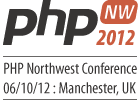This spring Emma Jane and Lorna Jane were chatting about PHP and Drupal and workshops and came to the conclusion that Drupal developers were not necessarily equipped for Drupal 8. With all of the Drupalisms in the Drupal code, it can sometimes be difficult to implement code that is both a Drupal best practice and a PHP best practice. While there are many workshops on how to teach PHP developers how to Drupal, there were no workshops teaching Drupal developers how to PHP. Until now!
My theory is that most developers working with CMSes like Drupal think they don’t know much PHP … but of course they actually know quite a lot! The newer versions make more use of OOP and new PHP features, but nothing that’s really rocket science (although the symfony components are very nice). This course is a chance for us to give a more solid grounding to those skills that developers just pick up along the way, and give some time to master those skills in a safe environment. Continue reading


